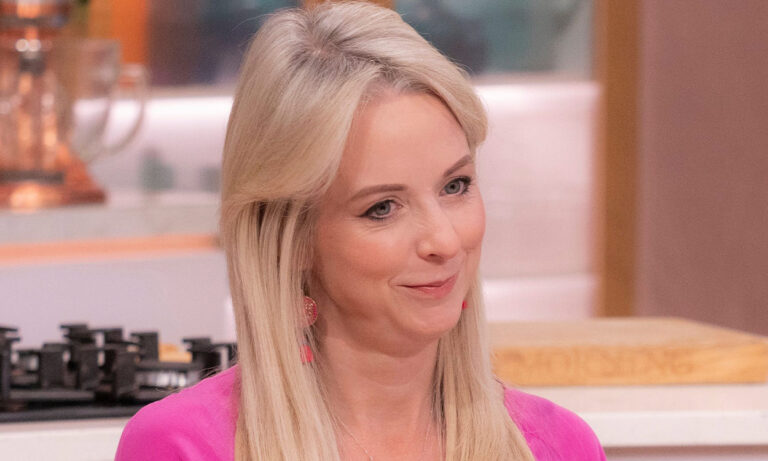Who is Isabel Oakeshott? Understanding the Westminster whistleblower who exposed Matt Hancock

On 28 February 2023, UK-based newspaper The Telegraph published the first of an extensive series of articles containing over 100,000 private WhatsApp messages obtained from former Health Secretary Matt Hancock. The highly damaging messages exposed a systemic mishandling of the COVID-19 pandemic crisis by the British government.
The publication’s revelations are currently being signed off by a group of journalists who’re calling themselves ‘The Lockdown Files Team’—seemingly in hopes of becoming the British press’ answer to The Avengers. However, behind this faceless tagline, is a freelance journalist whose prolific past as a whistleblower has made her Westminster’s single biggest political threat.
Who is Isabel Oakeshott?
Armed with the secrets of some of the most powerful men in the UK, Oakeshott has managed to create a controversial name for herself in the British political scene. Long-standing Tory and strong supporter of Brexit, Oakeshott has mingled with almost every high-ranking Conservative MP in the country.
Jumping from deputy political editor at The Sunday Times to the Daily Mail’s political editor-at-large, Oakeshott has had her fair share of experience when it comes to juggling the private lives of politicians. And one thing has remained consistently clear: she has zero issue with airing the dirty laundry of any official she can get her hands on.
‘Call Me Dave’ and ‘The Bad Boys of Brexit’
For over a decade, the political commentator has been at the helm of a dozen or so political scandals and has helped write a number of autobiographies for prominent Tory players. In 2015, Oakeshott co-authored Call Me Dave—a nonfiction book which has been deemed the unauthorised autobiography of former Prime Minister David Cameron.
In the book, Oakeshott, alongside fellow author and former life peer of the House of Lords Michael Ashcroft, revealed the infamous story involving Cameron allegedly performing a sex act on a deceased pig. Yeah, that story.
In 2018, the journalist was hired to write a diary-style book detailing the EU referendum from the eyes of prominent Brexiteer, businessman and co-founder of the Leave.EU campaign, Arron Banks. The inside account, accurately titled The Bad Boys of Brexit, ended up being an explosive political football when, during the writing process, Oakeshott obtained documents which linked Banks himself to Russian officials and businessmen.
As reported by The Guardian, Banks, who gave 12 million to the Leave campaign, became the biggest donor in UK history and has repeatedly denied any involvement with Russian officials, or that Russian money played any part in the Brexit campaign. However, The Observer has seen documents—evidently leaked by Oakeshott—which a senior Tory MP says, if correct, raise urgent and troubling questions about his relationship with the Russian government.
Whistleblowers aren’t an unusual sight within the British media establishment. From marital affairs to misogyny, there’s always been a journalist waiting in the wings, ready to pounce on any story in the name of public interest. However, Oakeshott’s methods have always been highly tactical and while I may not align with her political views, I have to respect her ruthlessness when it comes to unearthing the truth—whatever it may be.
Working with Matt Hancock on ‘Pandemic Diaries’ and the WhatsApp leaks
In 2022, Oakeshott approached her most challenging venture yet, trying to humanise disgraced former Health Secretary Matt Hancock. Working together for months on end, they ultimately created an account of Hancock’s perspective on the COVID-19 pandemic titled: Pandemic Diaries, The Inside Story Of Britain’s Battle Against Covid.
The book itself was relatively uninteresting. As predicted, Hancock botched his one opportunity for minor redemption by throwing a glorified temper tantrum—using the entirety of the account to lament over how he was treated during the pandemic.
When the book was first released, Oakeshott’s name for the most part stayed out of the headlines. However, as soon as The Telegraph released those private messages, her name skyrocketed into the spotlight.
According to Sky News, the journalist—who passed over more than 2.3 million words from exchanges the former Health Secretary and his colleagues had about COVID-19 policy at the height of the pandemic—has admitted that she directly violated her non-disclosure agreement (NDA) with Hancock when she chose to share the messages.
Some of the most important revelations have included: insight into the political, rather than scientific, reasoning behind some of the country’s most intense lockdowns, top officials mocking travellers who were forced to isolate in government-run hotels, and catty in-party fighting (including contemplating “locking up” Nigel Farage, which wouldn’t have been the worst idea to be honest).
Oakeshott continues to vehemently defend her decision to release the WhatsApp messages, citing that it was within the public’s interest that they be privy to these inner government conversations.
We all deserve to know the truth about what happened during the pandemic. I will not be deterred by sanctimonious sniping from those who repeatedly failed to hold the government to account. #thelockdownfiles
— Isabel Oakeshott (@IsabelOakeshott) March 4, 2023
Hancock, on the other hand, has stated that the leak was a “massive betrayal and breach of trust.” While Oakeshott has received quite a bit of support from the British population for taking such a risk, the media community has been slightly less kind. Some have deemed her decision to hand over the messages to a newspaper who were overtly anti-lockdown during the pandemic as problematic.
So, wherever you sit on the entire fiasco, the question remains: Why on earth do prominent politicians keep hiring Oakeshott to write their autobiographies? While I’m always going to favour the whistleblower over the Westminster puppet, you have to question why any of these men didn’t see it coming? I guess that pretty much sums up British politics for you.





